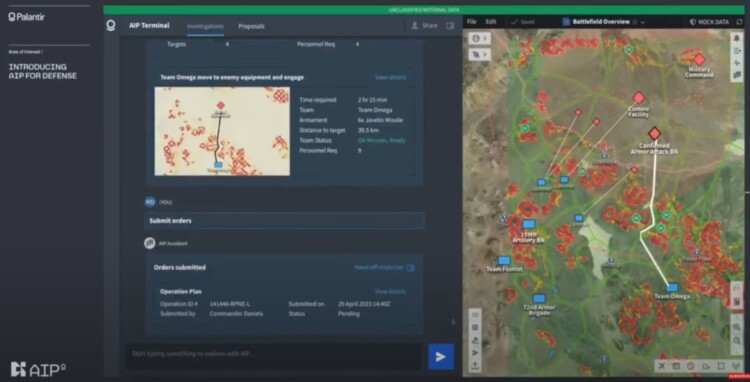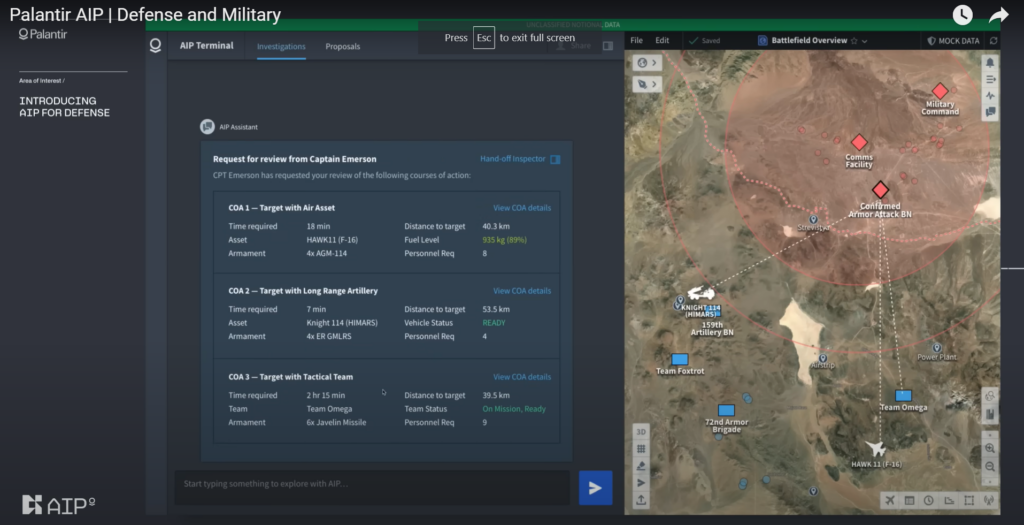The AIP marks a turning point in the intersection of AI and military operations. Palantir strives to offer defense organizations informed, data-driven decisions in real-time, enhancing agility and strategic advantage on the battlefield. As the AIP evolves, it has the potential to revolutionize defense organizations’ approach to processing and strategizing amid complex and rapidly changing threats. Moreover, the seamless integration of AI technologies within existing defense platforms offers a glimpse into a future where human operators can leverage LLMs’ immense analytical capabilities to heighten situational awareness and response.
A Strong Commitment to Security
Palantir’s commitment to upholding stringent security protocols and protecting sensitive information is evident in the AIP’s deployment on classified systems. Enabling real-time analysis of classified and non-classified data, the AIP empowers defense organizations with a comprehensive view of the battlefield, allowing them to make well-informed decisions while adhering to legal and ethical guidelines.
The AIP’s emphasis on user control is crucial to responsible AI integration. Human operators maintain agency in decision-making by allowing users to define the scope and actions of LLMs and other models. In addition, the Action Graph, positioned atop the AI Core, serves as a mechanism to manage and audit AI systems’ activities, striking a balance between automation and human oversight. This human-in-the-loop approach enhances accountability and enables AI responses to be fine-tuned to align with strategic objectives.
Trust and compliance are essential when deploying AI technologies for defense purposes. Palantir’s implementation of industry-leading guardrails within the AIP is a testament to its commitment to responsible AI usage. These guardrails function as safeguards, actively monitoring LLM activity and preventing unauthorized actions. By incorporating robust monitoring and control mechanisms, defense organizations can ensure that AI technologies operate within the bounds of legal, ethical, and regulatory frameworks.

Questions of Reliability and Accuracy
While the video demonstration showcased the potential of the AIP in a military context, questions remain about the reliability and accuracy of LLM-generated information. Addressing the phenomenon of “hallucinations” or the generation of false facts by LLMs is an ongoing challenge. Palantir and other AI developers must continue to fund research and development to enhance LLMs’ robustness and fidelity, minimizing the risk of misleading or erroneous outputs.
Palantir’s AI initiatives extend beyond the defense sector. The company’s expertise in analyzing and integrating vast amounts of data has found applications in finance, healthcare, and government sectors. The AIP represents a significant milestone in its commitment to harnessing the power of AI technologies across industries. By integrating LLMs into their existing platforms, Palantir enables customers to leverage the capabilities of AI alongside their machine learning technologies, unlocking new avenues for data-driven insights and decision-making.
Re-Shaping the Defense Landscape
As the AIP evolves and matures, it has the potential to reshape the landscape of defense decision-making. By augmenting human intelligence with the analytical capabilities of LLMs, defense organizations can gain a competitive edge in the face of complex and dynamic threats. However, the responsible deployment of AI technologies in military contexts must remain a top priority. Ethical considerations, legal compliance, and the prevention of unintended consequences should guide the continued development and implementation of AI systems like the AIP.
As Palantir pioneers the integration of AI and LLMs into military decision-making processes, the company is poised to play a pivotal part in shaping the future of defense strategies. With a strong focus on ethics, legality, and user control, the AIP offers a promising framework for leveraging the power of AI while maintaining human oversight. As defense organizations embrace the potential of AI, the responsible and accountable use of these technologies will be key to harnessing their full potential in safeguarding national security and promoting global stability.
—
** If you want to learn more about competing in the age of AI, click here.











COMMENTS